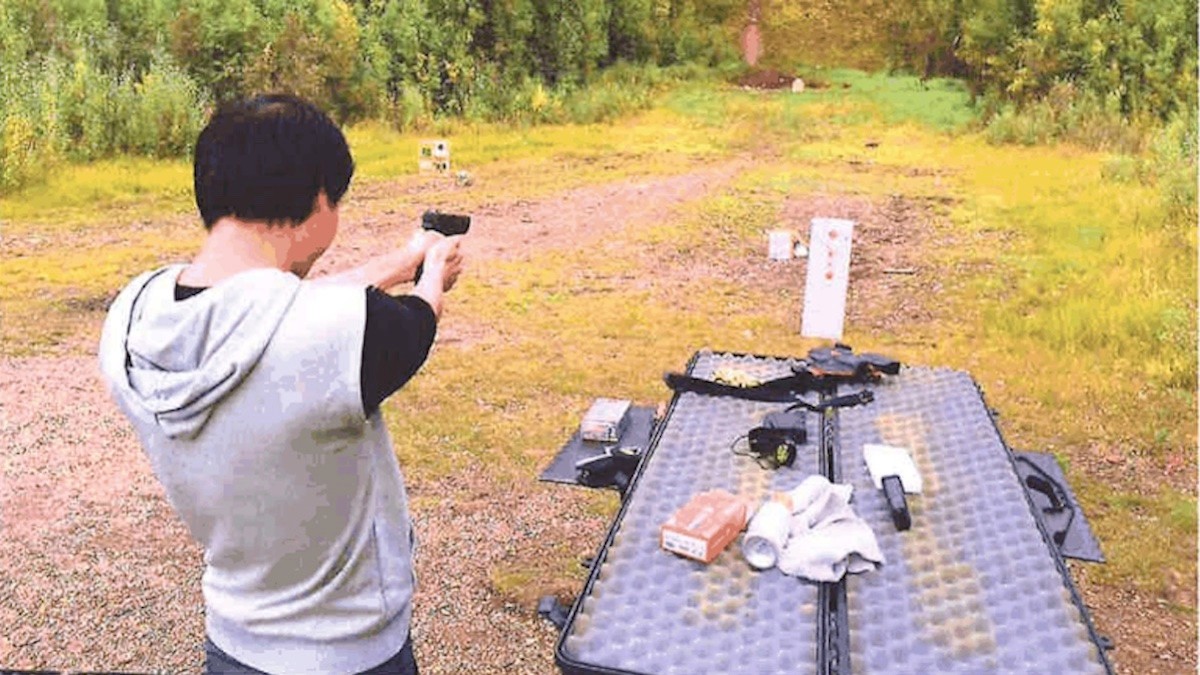Illegal Bear Outfitter Offering Prostitution and Gallbladders Busted in Sting Operation

In a strange wildlife-related sting operation, the U.S. Fish and Wildlife Service plans to indict two Fairbanks, Alaska, residents for operating an illegal outfitting business involving bear hunting, prostitutes, and gallbladders.
According to a criminal complaint filed with a U.S. District Court in Alaska, Jun “Harry” Liang, a Chinese national, and his neighbor Brian Phelan, were implicated in a complex scheme to take clients on illicit brown bear hunts.
The two face charges for attempted violation of the Lacey Act, illegal possession of a firearm by an alien, wire fraud, and money laundering—among several others.
The saga began back in October 2021 when state wildlife troopers received a tip that a group of Chinese immigrants were conducting an unlicensed operation. At the time, the offenders were advertising their “Alaska Guide Lodging” business on a Chinese luxury booking platform known as Little Red Book, on which interactions are conducted entirely in Mandarin.
That’s around the time the Feds got involved. According to the filings, a Homeland Security Investigations agent contacted Liang on the website, claiming to be interested in booking a hunting trip for two people. At first, Liang suggested an eight-night caribou hunt for $24,300 per person. But the undercover agent kept pushing for a bear hunt. Liang claimed he had to check with his “guide,” and finally got back with a quote: $60,000 for the pair.
Over the course of their conversation (still virtual at this point) the agent pried Liang for evidence of success on past hunts, to which Liang shared a series of photos of a former Chinese “client” from California. In one, Liang and the client are practicing at a shooting range, and in another are next to a black jeep somewhere in the Alaskan tundra. Liang told the agent he didn’t need to worry about a license, and that he would arrange it all as part of the booking fee.
Liang requested a $15,000 deposit for the hunt, assuring the agent that “me and hunter colleague are very professional.” He continued, “We will go to the hunting area to find animal. The hunted animal you can ship back for consumption, can find butcher to process and package to ship.” Fully convinced, the agent paid the deposit.
On August 21, 2022, two undercover agents met Liang at an Asian bistro in Fairbanks to begin their bear hunt. Things took a suspicious turn from the get-go when they drove to the Alaska Department of Fish and Game office in Fairbanks to purchase tags.
Alaska regulations require that anyone hunting brown bears must hire a licensed guide or be accompanied by an Alaskan resident who is a relative. Thus, when the agents went to purchase their brown bear tags, the employee asked who their guide was. In response, Liang called Phelan on his cell phone and gave the phone to the employee. Phelan reportedly said that he was not a big-game guide, but rather the brother-in-law of the two agents. A few minutes later, the undercover cops walked out with their hunting licenses and brown bear tags.
The next day, the agents cut Liang two checks totaling $45,000 to complete the payment for the hunt. Records later revealed that the same afternoon Liang bought a Mercedes SUV at a nearby dealership.
Liang took the agents to a gun range, and then to set up a hunting base camp at the Quartz Lake Campground near Delta Junction, where they also met Phelan. Over the subsequent four days, Laing and Phelan provided guiding services by “walking them to the hunting area, setting up two portable hunting blinds, providing firearms and ammunition, and providing advice while in the field.”
Liang also offered the agents prostitutes for $1,800 per night or $500 per sex act. He even offered to sell them a bear gallbladder for $5,000 (Alaska law prohibits the sale of brown bear parts). The agents declined both offers.
If you’re curious as to why a bear gallbladder would fetch such a high price, it’s been a component of Traditional Chinese Medicine (TCM) for thousands of years. The gallbladder has a high concentration of ursodeoxycholic acid, and even modern scientists can’t deny its medical properties from non-surgical gallstone treatment to preventing tumor growth. Commonly sold as “bear bile,” the gallbladder is dried, ground, placed in capsules, and prescribed to treat everything from the common cold to epilepsy. Although there are bear “farms” where bears are kept in small cages and are “milked” for bile, most consumers prefer bear bile from a wild source.
After a few unsuccessful days of hunting, Phelan informed everyone that he’d made a scheduling mistake and had to return to his day job. Liang drove Phelan back to Fairbanks, and upon return told the agents that he had paid Phelan $15,000 for his guiding services.
The next day, the agents decided to end the hunt and tipped Liang $1,500 in cash. Shortly thereafter, Liang posted a picture of the wad of cash on his Little Red Book account with a caption about a large tip from a client.
The filings conclude with the statement: “There is probable cause to believe that Liang and Phelan attempted to sell big game guiding services for the illegal take of wildlife into interstate commerce in violation of Alaska law, and that Liang illegally possessed a firearm while prohibited by federal law.”
Officials arrested Liang last week.
Phelan, while still free, told The Daily Beast in an interview: “I don’t have anything to hide, if you want the full scoop, when this whole thing’s over, I’ll tell you everything… Because there’s a lot more to this than what they filed in court.”
Now that much is believable.
Feature image via U.S. District Court for the District of Alaska.





